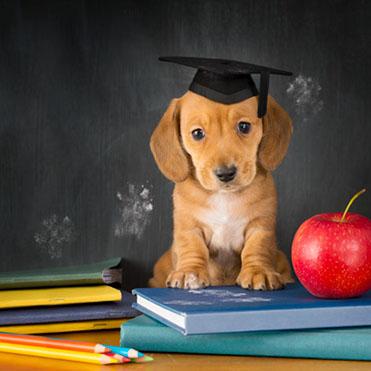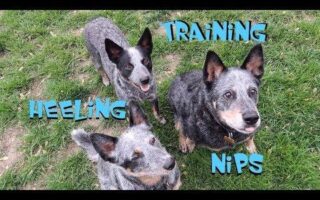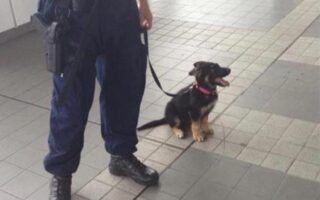Are you a proud new puppy parent, brimming with excitement yet slightly overwhelmed by the whirlwind of puppy energy in your home? As you navigate the delightful challenges of training and socializing your furry companion, you might find yourself searching for the perfect solution to set your pup on the path to success. Enter puppy kindergarten—a fun and engaging environment designed to foster essential skills while making new friends. In this article, we’ll explore the benefits of enrolling your puppy in kindergarten classes, what to look for when searching for the right program near you, and tips to ensure your little one gets the most out of this critical learning experience. Join us as we embark on the journey to transform your pup from a playful ball of energy into a well-mannered member of your family and community!
Table of Contents
- Finding the Right Puppy Kindergarten in Your Area
- Essential Skills Your Puppy Will Learn in Kindergarten
- Choosing the Best Trainer: What to Look For
- Maximizing Your Puppy’s Learning Experience at Kindergarten
- Q&A
- Wrapping Up
Finding the Right Puppy Kindergarten in Your Area
When searching for a puppy kindergarten, it’s important to consider several factors that can affect your puppy’s development. Start by creating a list of local options and researching each facility’s reputation. Look for facilities that are accredited and have experienced trainers, as well as positive reviews from other pet owners. You can also ask for recommendations from your veterinarian or fellow dog owners in your area. A good environment is crucial, so make sure to visit the facility beforehand to observe the atmosphere, cleanliness, and how the staff interacts with the dogs.
While evaluating various schools, consider the following aspects to ensure you choose the best fit for your puppy:
- Class Size: Smaller classes allow for more individualized attention.
- Curriculum: Ensure it covers basic training, socialization, and behavioral education.
- Age Requirements: Check if they accept puppies of your pup’s age.
- Instructor Qualifications: Look for experienced trainers with positive reinforcement methods.
Here’s a simple table to help you summarize essential attributes when comparing different puppy kindergartens:
| Facility Name | Class Size | Training Focus | Cost |
|---|---|---|---|
| Pawtastic Academy | 5-7 puppies | Socialization, Basic Commands | $150/month |
| Furry Friends School | 8-10 puppies | Advanced Obedience, Tricks | $180/month |
| Happy Tails Training | 4-6 puppies | Behavior Management, Social Skills | $200/month |
Essential Skills Your Puppy Will Learn in Kindergarten
Puppy kindergarten is an exciting adventure that helps your furry friend grow into a well-mannered adult dog. As your puppy interacts with other dogs and trainers, they will gain essential socialization skills that set the foundation for positive behavior. In a controlled environment, puppies learn to understand canine body language, which is crucial for peaceful interactions. Other skills they will develop include:
- Basic Commands: Sit, stay, and come will become second nature.
- Impulse Control: Waiting for their turn and remaining calm in a group.
- Confidence Building: Overcoming fears of new sights, sounds, and surfaces.
Additionally, puppy kindergarten emphasizes good manners that will make your home life easier. Training sessions often incorporate fun games to reinforce learning while keeping your puppy engaged. Here’s a brief look at what you can expect your puppy to master during their time in class:
| Skill | Description |
|---|---|
| Leash Etiquette | Walking nicely without pulling. |
| Handling Exercises | Getting comfortable with being touched and examined. |
| Distraction Training | Staying focused despite distractions in their environment. |
Choosing the Best Trainer: What to Look For
Choosing the right trainer for your puppy is a pivotal step in their development. When searching for a trainer, consider their credentials and experience. A certified professional with a background in canine behavior is ideal, as they possess the necessary knowledge to guide you effectively. Look for trainers who have hands-on experience with puppies, as this ensures they can create a positive and engaging learning environment. Additionally, testimonials from previous clients can provide insight into a trainer’s effectiveness, so don’t hesitate to ask for references. Engage with potential trainers to gauge their communication style and ability to connect with both you and your puppy.
Another crucial aspect is the training philosophy of the instructor. It’s important to choose a trainer who utilizes positive reinforcement techniques as these methods encourage learning and foster a trusting relationship between you and your puppy. When interviewing trainers, inquire about their approach to behavior modification and discipline. Moreover, consider the structure of their classes. A well-balanced curriculum should include both socialization and basic obedience commands. Here are some factors to consider:
| Criteria | Importance |
|---|---|
| Trainer Credentials | Ensures professional standards |
| Positive Reinforcement | Builds trust and motivation |
| Class Size | Allows for personalized attention |
| Curriculum Structure | Should cover socialization and obedience |
Maximizing Your Puppy’s Learning Experience at Kindergarten
To ensure your puppy thrives in kindergarten, focus on creating a positive and engaging atmosphere. Incorporate a variety of training activities that stimulate both their minds and bodies. Socialization is key at this stage, so encourage your puppy to interact with both dogs and people. Consider the following activities to maximize their learning experience:
- Interactive play: Use toys to promote teamwork and communication.
- Basic commands: Teach simple commands like sit, stay, and come through fun games.
- Obstacle courses: Set up challenges to enhance agility and confidence.
- Group socialization: Arrange supervised playdates to foster healthy social skills.
Understanding how puppies learn can also guide your approach. They respond well to positive reinforcement, so celebrate their successes with praise and treats. Consistency in training is vital; keep commands and routines the same to avoid confusion. Below is a simple overview of effective training tips:
| Tip | Description |
|---|---|
| Short Sessions | Limit training to 5-10 minutes to keep their attention. |
| Use High-Value Treats | Choose treats that your puppy loves for motivation. |
| Practice Regularly | Incorporate training into daily routines for reinforcement. |
| Create a Positive Environment | Ensure the space is free from distractions for effective learning. |
Q&A
Q&A: Finding Puppy Kindergarten Near You
Q: What is puppy kindergarten, and why is it important for my new puppy?
A: Puppy kindergarten is a foundational training program designed for young dogs, typically aged 8 to 16 weeks. It focuses on socialization, basic obedience, and exposure to various environments and stimuli. Attending puppy kindergarten helps your pup develop important social skills, learn good manners, and build confidence, making it an essential step in their growth.
Q: How do I find puppy kindergarten classes near me?
A: Start by searching online for local pet training schools, veterinary clinics, or community centers that offer puppy classes. Websites like Yelp, Google Maps, and Nextdoor can provide reviews and recommendations. Asking your veterinarian or fellow dog owners for suggestions is also a great way to discover nearby options.
Q: What should I look for when choosing a puppy kindergarten?
A: When selecting a puppy kindergarten, consider the trainer’s qualifications, class size (small groups are ideal), and the curriculum offered. Look for programs that prioritize positive reinforcement techniques, allow ample time for play, and ensure safe socialization with other puppies. Additionally, check if they require vaccinations to protect your pup’s health.
Q: Can I attend the classes with my puppy?
A: Yes! Most puppy kindergarten programs encourage owners to participate actively in the training process. Your involvement helps reinforce the lessons learned in class and strengthens the bond between you and your puppy. Plus, it gives you an opportunity to ask questions and receive guidance from the instructor.
Q: What should I bring to puppy kindergarten?
A: For your first class, you’ll typically need a few essentials: a collar or harness, a leash, and some tasty treats for positive reinforcement. Some classes may suggest bringing a blanket or mat for your puppy to sit on, as well as toys or chews to keep them engaged. Always check with the facility for any specific requirements.
Q: What can I expect during a typical puppy kindergarten session?
A: A typical session may involve a mix of structured activities and playtime. You’ll work on commands like sit, stay, and come while also allowing your puppy to socialize with other pups, which is crucial for their development. Expect a blend of instruction, play, and lots of tail-wagging excitement!
Q: How often should my puppy attend kindergarten classes?
A: Most programs run weekly, with sessions lasting about an hour. Regular attendance is recommended to create a routine and reinforce what your puppy learns. As your pup progresses, you might also consider enrolling in additional training classes to build on their skills and continue their education.
Q: How much does puppy kindergarten typically cost?
A: The cost of puppy kindergarten classes can vary widely depending on your location, the facility’s reputation, and the length of the course. On average, you can expect to pay anywhere from $100 to $300 for a series of classes. Remember that investing in training can lead to a well-adjusted, happy puppy—priceless benefits that outweigh the costs!
Q: When should I enroll my puppy in kindergarten?
A: It’s best to enroll your puppy in kindergarten as soon as they’re old enough and have completed their initial vaccinations. Early socialization is crucial during their formative weeks, so don’t wait too long—getting started now sets the stage for a confident and well-behaved adult dog!
Q: What if I can’t find a puppy kindergarten nearby?
A: If you’re having trouble finding a local kindergarten, consider exploring online training options. Many reputable trainers offer virtual classes that cover essential puppy training topics. Additionally, you can work on socialization and training independently by exposing your puppy to various environments, people, and other dogs in a controlled manner.
By taking these steps, you’ll be well on your way to ensuring your puppy receives the training and socialization they need to thrive! Happy training!
Wrapping Up
As you embark on the exciting journey of welcoming a new puppy into your home, remember that the early weeks and months are critical in shaping their behavior and social skills. Enrolling your furry friend in a local puppy kindergarten can transform this phase into a fun and enriching experience, not only for your pup but for you as well. By connecting with other puppy parents and learning from experienced trainers, you’ll be equipped with the tools necessary to nurture a well-adjusted canine companion.
So, take the plunge and explore the puppy kindergarten options near you! With each wagging tail and playful bark, you’ll discover the joys of training and socialization. Your dog’s first steps into the world of obedience and friendship are just a few classes away. Here’s to building a strong foundation for a lifetime of companionship and love, one paw at a time.



